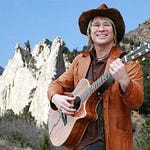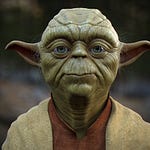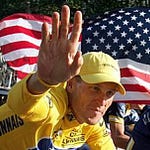Neil Percival Young OC OM (born November 12, 1945) is a Canadian and American singer-songwriter. After embarking on a music career in Winnipeg in the 1960s, Young moved to Los Angeles, forming the folk-rock group, Buffalo Springfield. Since the beginning of his solo career, often backed by the band Crazy Horse, he released critically acclaimed albums such as Everybody Knows This Is Nowhere (1969), After the Gold Rush (1970), Harvest (1972), On the Beach (1974), and Rust Never Sleeps (1979). He was also a part-time member of Crosby, Stills, Nash & Young, with whom he recorded the chart-topping 1970 album Déjà Vu.
In 1965, Young toured Canada as a solo artist. In 1966, while in Toronto, he joined the Rick James-fronted Mynah Birds. The band managed to secure a record deal with the Motown label, but as their first album was being recorded, James was arrested for being AWOL from the Navy Reserve. After the Mynah Birds disbanded, Young and the bass player Bruce Palmer decided to pawn the group's musical equipment and buy a Pontiac hearse, which they used to relocate to Los Angeles. Young admitted in a 1975 interview that he was in the United States illegally until he received a "green card" (permanent residency permit) in 1970.
Once they reached Los Angeles, Young and Palmer met up with Stephen Stills and Richie Furay after a chance encounter in traffic on Sunset Boulevard. Along with Dewey Martin, they formed Buffalo Springfield. A mixture of folk, country, psychedelia, and rock, lent a hard edge by the twin lead guitars of Stills and Young, made Buffalo Springfield a critical success, and their first record, Buffalo Springfield (1966), sold well after Stills' topical song "For What It's Worth" became a hit, aided by Young's melodic harmonics played on electric guitar. According to Rolling Stone, the Rock and Roll Hall of Fame and other sources, Buffalo Springfield helped create the genres of folk rock and country rock.
Buffalo Springfield was a Canadian American rock band formed in Los Angeles in 1966 by Canadians Neil Young, Bruce Palmer and Dewey Martin and Americans Stephen Stills and Richie Furay. The group, widely known for the song "For What It's Worth", released three albums and several singles from 1966 to 1968. Their music combined elements of folk music and country music with influences from the British Invasion and psychedelic rock. Like contemporary band the Byrds, they were key to the early development of folk rock. The band took their name from a steamroller parked outside their house.
"Heart of Gold" is a song by Canadian singer-songwriter Neil Young. From his fourth album Harvest, it is Young's only U.S. No. 1 single. In Canada, it reached No. 1 on the RPM national singles chart for the first time on April 8, 1972, on which date Young held the top spot on both the singles and albums charts, and No. 1 again on May 13. Billboard ranked it as the No. 17 song for 1972
The song, which features backup vocals by James Taylor and Linda Ronstadt, is one of a series of soft acoustic pieces which were written partly as a result of a back injury. Unable to stand for long periods of time, Young could not play his electric guitar and so returned to his acoustic guitar, which he could play sitting down. He also played his harmonica during the three instrumental portions, including the introduction to the song.












Share this post